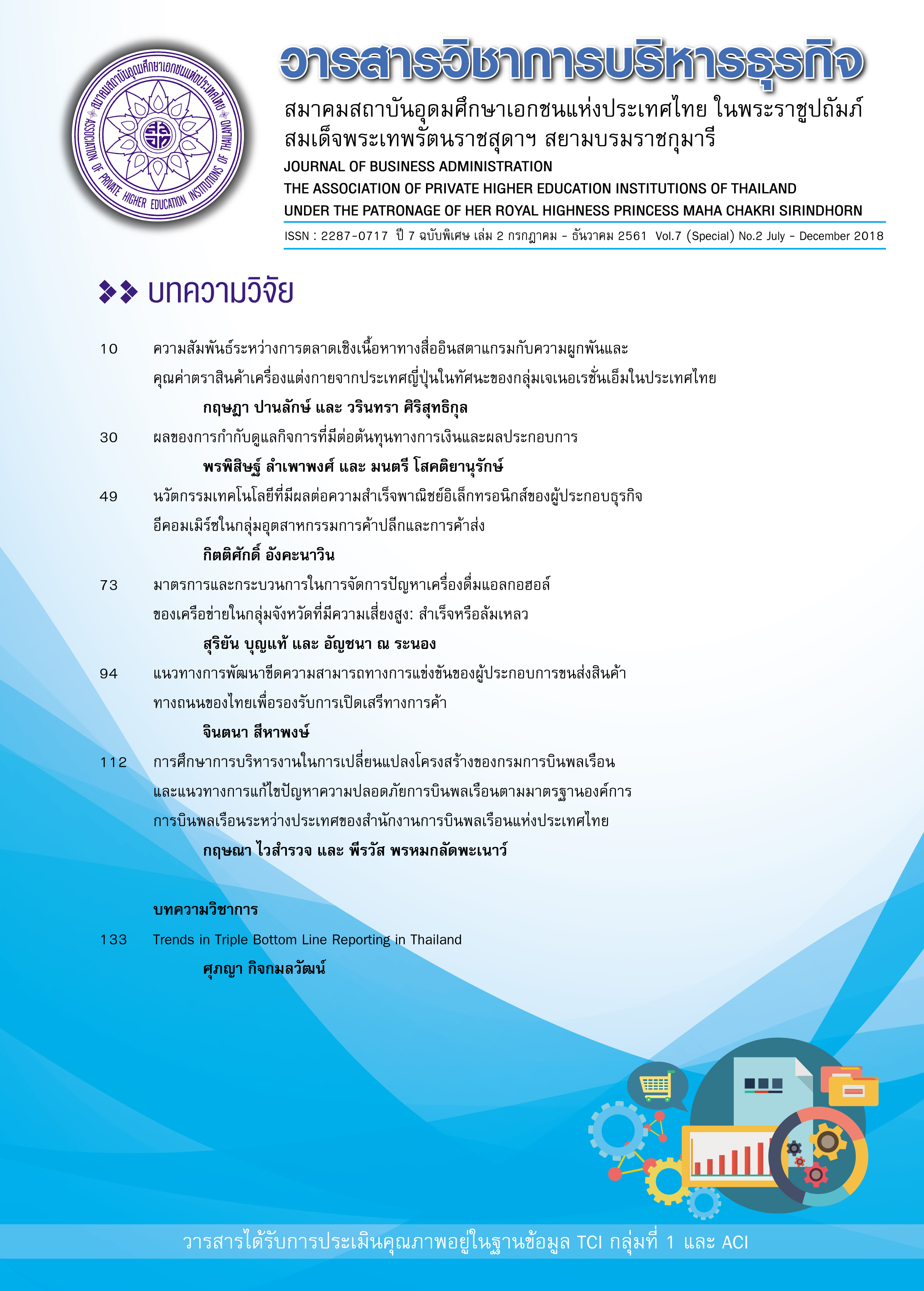Trends in Triple Bottom Line Reporting in Thailand
Keywords:
Triple Bottom Line, Sustainable Development, Sustainability Report, Business Value CreationAbstract
The traditional way to measure the success of a business is to focus at the bottom line of the
income statement that shows the firm’s net income and maximizes wealth for shareholders. Now,
companies realize that focusing on quality of products or services and profits are not sufficient.
Companies pay more attention on the impact of society, ecology, and economy. The Triple Bottom
Line Reporting (TBL) looks at the profits that a business makes socially, environmentally, and
economically. For Thailand, stakeholders are aware of the environment and natural resources
problems, employment and human rights issues, social inequality problem, and etc. All of these
have impacts on global sustainability. Stakeholders also pay higher attention on these issues.
In response to these issues, public companies and many large companies in Thailand gradually
include the TBL principles in their sustainability reports. The TBL focuses on companies’ concrete
development processes that create values for society rather than reporting results of the projects.
Businesses that successfully implement the TBL in their strategies will become more efficient,
more innovative, and more competitive, can reduce costs, enhance brand image and customer
loyalty, and foster employee collaboration. All of these lead the businesses to sustainable value
creation in the future.

Downloads
Published
How to Cite
Issue
Section
License
บทความที่ลงตีพิมพ์ในวารสารวิชาการบริหารธุรกิจ สมาคมสถาบันอุดมศึกษาเอกชนแห่งประเทศไทยต้องเป็นบทความที่ไม่เคยได้รับการตีพิมพ์เผยแพร่ หรืออยู่ระหว่างการพิจารณาตีพิมพ์ในวารสารอื่นๆ การละเมิดลิขสิทธิ์เป็นความรับผิดชอบของผู้ส่งบทความโดยตรง

